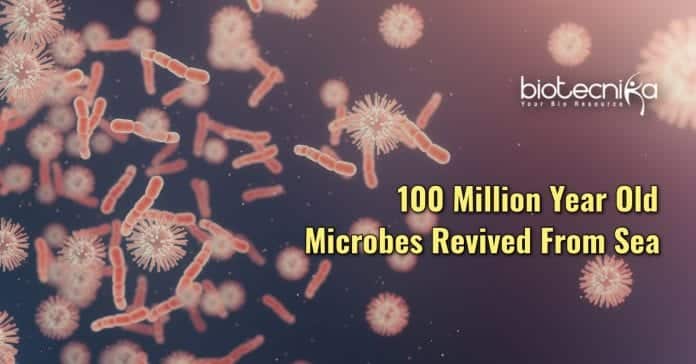Ancient Microbes Revived From Sea By Japanese Scientists
Microbes that were in a dormant state for more than 100 million years have been revived by some Japanese scientists. In the South Pacific seabed, where the sediment is poor in nutrients, the tiny organisms were surviving with an oxygen enough to keep them alive.
Microbes are the simplest organisms on earth that can live in extreme conditions that cannot be tolerated by developed life forms. The microbes revived from the seabed began to eat and multiply after incubation by the scientists.
The Japan Agency for Marine-Earth Science and Technology led the research study, which got published in the journal Nature Communications.
The lead author Yuki Morono said they were skeptical about whether the findings are from some mistake or a failure in the experiment when they found them. He said the scientists now know that there is no age limit for the organisms living in the sub-seafloor biosphere.
Scientists found several tiny, single-celled marine microbes within the sediment that make up the majority of living organisms in the ocean. The microbes could barely move or eat in the sediment layers. It was surprising to see that life can exist in such
a nutrient-poor environment.To test if the ancient samples are capable of feeding and dividing into more cells, they gave them carbon and nitrogen substrates. Most of the cells quickly responded to the new conditions over a period of 68 days and multiplied by four orders of magnitude.
The ancient microbes were revived from the oldest samples taken from the sea, said Steven D’Hondt, who co-led the study at the University of Rhode Island. Some organisms are still living in the oldest sediment, with the least amount of food. They can grow and multiply once they woke up.
There were studies before, that published how bacteria can survive in places devoid of oxygen, like the undersea vents and other harsh places.
Some of the simplest living structures on earth might not actually have the concept of lifespan, said Mr. Morono.































Hello,
Thanks for the nice information.
“Hope is indeed required in these desperate times.”
Cheers!